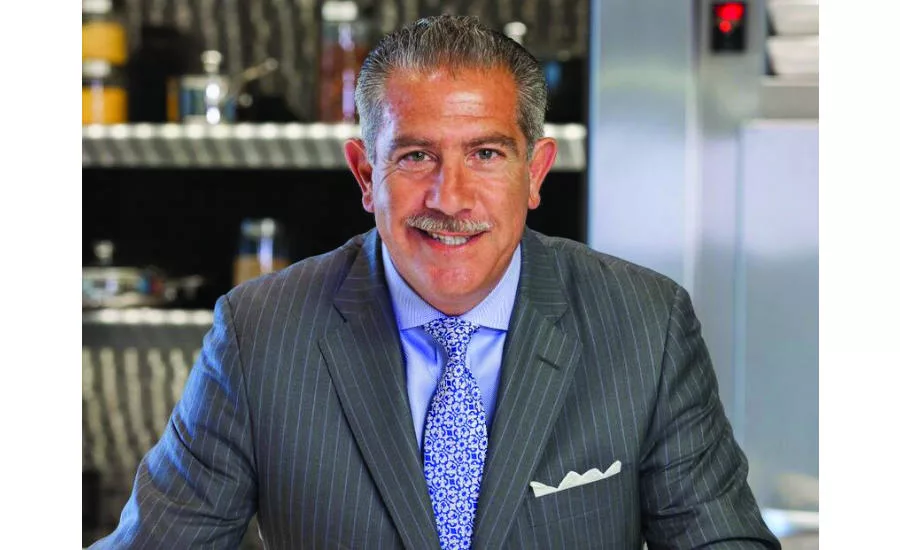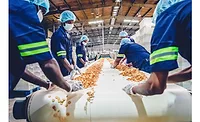Coronavirus
Q&A: How specialty processors are handling the COVID-19 pandemic
Specialty Foods Association president Phil Kafarakis shares insights on how processors are adapting

The continuing COVID-19 pandemic is testing the resources and emergency plans of food and beverage processors across the industry.
Those challenges are exacerbated for smaller or specialty food companies, which may not have the resources or expertise that larger companies have. As processors try to balance worker safety with meeting a sustained surge in demand, they begin to run up to the limits of what they can do to keep their operations running.
In this Q&A, Phil Kafarakis, president of the Specialty Food Association, addresses some of the challenges being faced by processors and how they are responding.
Food Engineering: What is the biggest challenge facing the food industry right now?
Phil Kafarakis, Specialty Food Association: The need to keep up with consumer demand and the reoccurring “hoarding effect” continues to be the focus of the industry, whether large multi-national or small privately held independent manufacturer. Stressing the supply chain at all levels with an unpredictable view of what to expect has totally put food companies in a very challenging position and will ultimately affect their ability to remain solvent.
FE: How is it being addressed?
PK: The most common and immediate solution appears to be the hiring of more people and keeping plants running 24/7. Both are short-term stopgaps that erode margins and could impact sustainable production. The ability to effectively plan and comply with even the best of SOP and quality standards is being seriously challenged given the unpredictable nature of filling orders and delivering on time.
Looking for quick answers on food safety topics?
Try Ask FSM, our new smart AI search tool.
Ask FSM →
FE: What workplace safety measures are being put into place?
PK: The need for greater attention to workforce health and wellness – more medical staff oversight, implementation of “distancing” in a plant environment and prompt testing for COVID-19 are the bare minimums that manufacturers are instituting.
FE: How are those measures varying based on the size of the company and the markets they serve?
PK: The only variable that could be distinguished based on company size would be the amount of labor being employed and the external medical assistance/resource that could be leveraged. Everyone is dealing with these elements.
FE: For a lot of processors, the biggest challenge they’re facing right now is a sustained surge in demand. How is that (if it is) affecting things such as insurance planning or finances as they try to quickly ramp up production by hiring more workers?
PK: From what I am hearing from our members, it’s all about liquidity and the ability to have trusted and reliable financial partners to help you through all the unexpected expenses that come with accommodating the supply surge. Well capitalized companies with lines of credit and solid business plans are looking to take advantage of the very low interest rates and expand their infrastructure now. Insurance policies definitely will be stressed in their interpretations and especially as companies get dangerously close to their “burn-rates” in maintaining operations—it will be more about business disruption and variables dealing with having to operate in an environment that does not allow for maintenance, cleaning and repairs. The toll on equipment and its reliability in this environment will cause companies to go out of business faster than getting a loan approved.
FE: How is the transportation situation right now?
PK: The challenges are not new and the lack of drivers and containers globally have only gotten worse. The circumstances now have only made matters worse as shipping ports have had to shut-down and shipping routes redirected, time now has become a greater enemy than lack of capacity—the longer it takes the more pressure on quality of goods and supply replenishment.
FE: How are transportation providers and processors adapting?
PK: The inevitable has taken over and there is more “sharing is caring” across competitors to meet their unique commitments by splitting up resources and accommodating their transporters’ needs to be at full capacity. A more integrated logistics platform that leverages technology is now a standard tool for all major carriers and whether it’s a proprietary system or not it’s commonly shared with processors who can accommodate it.
My overall take on all of this disruption is that it’s setting us all up to be more transparent and willing to share data, as well as resources if we are to survive—there will be not be one winner in any of this. As much as some companies will not make it, there will be several that become stronger by leveraging interdependent relationships that are established during this crisis.
Phil Kafarakis is president of the Specialty Food Association, an organization representing some 4,000 independent specialty food companies.









